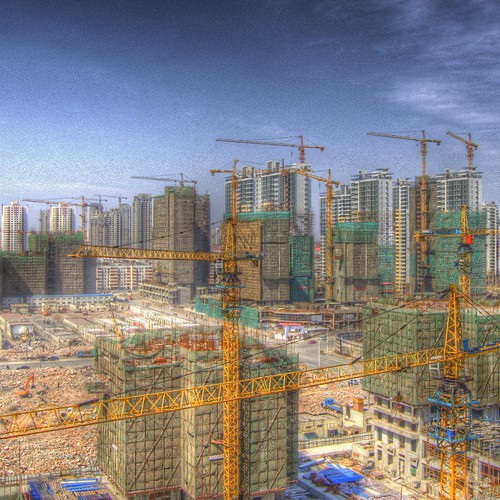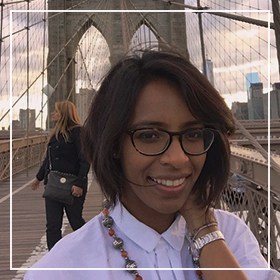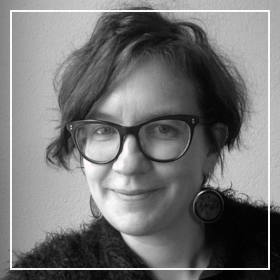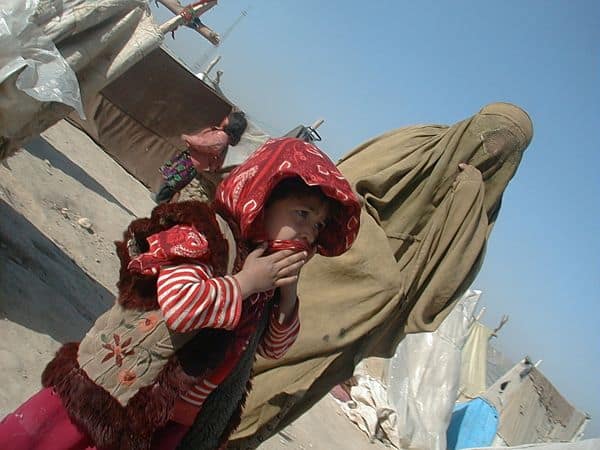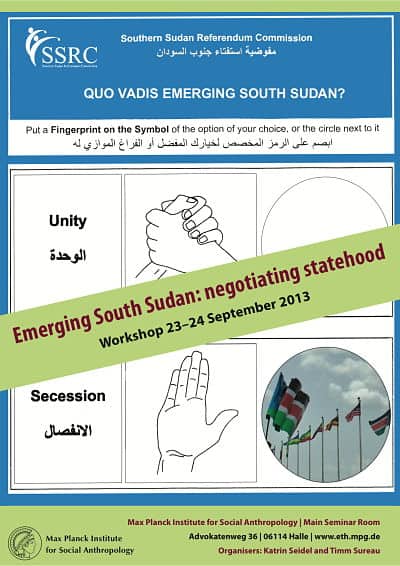Ever since the multiplication of protest movements that have gained prominence since 2011, the issue of change and its assessment has become a recurring topic in scientific research. The link between protest and change has been influenced immensely by researchers’ own interests and political engagement in claims and movements. By placing the notions of “change” and “social transformation” at the centre of this ambitious workshop, the aim of “Snapshots of Change” was to critically reflect and discuss how we methodologically and theoretically deal with the notion of “change” in qualitative research. Studying change is linked to reflections on how to name the transformations we are observing or are interested in. More than anything, the words used to label change matter as they are value-laden, often referring to the direction towards which the named process is expected to move.
Notions such as development, transition, evolution, progress, rupture and revolution have often a strong normative dimension as they convey teleological presuppositions imbedded in grand narratives linked to liberalism, democratisation, developmentalism or socialism for example.
By questioning and transgressing such notions, the workshop “Snapshots of Change,” organized in October 2015 at the University Research Priority Program Asia and Europe at University of Zurich, succeeded in highlighting areas for future research. The workshop was convened by Yasmine Berriane, Aymon Kreil, Dorothea Lüddeckens, Melek Saral and Thiruni Kelegama, and brought together 12 presenters from all over Europe, 6 discussants and 10 poster presenters, all engaged in 2 days of intensive discussion about change from various perspectives. The presented reflections on change were based on a broad range of qualitative data: besides interviews, ethnographic fieldwork and biographies, workshop participants also presented insights in tracing change through objects like souvenirs, photographs, diaries, written documents, and digital sources.
In this conference report, rather than repeating the content of the workshop (which is accessible in the URPP bulletin [1]), we start from the perspective of our own research topics on state formation in northeastern Sri Lanka (Thiruni Kelegama) and on urban transformation in China (Madlen Kobi). By referring to some key concepts raised in the workshop, it is our aim to emphasize the impact that the workshop had on our perspectives and future dealings with change in our own research.
Enacting the state in northeastern Sri Lanka (Thiruni Kelegama)
Working on a dissertation that is an ethnographic study of development, resettlement and militarisation in northeastern Sri Lanka involves a significant interest in temporality, or that of ‘change’. My thesis looks at the processes of state formation and demonstrates how the state gets reproduced in the margins. By looking at state formation undertaken in postwar Sri Lanka, I thereby engage with the changing relationship between state, territory and nation. My field site of Weli Oya is located in northeastern Sri Lanka, a space that is often demarcated as a frontier in the country’s three-decade-old protracted war between the Liberation Tigers for Tamil Eelam (LTTE) and the Sri Lankan government security forces. Weli Oya is a key site for the oldest state led development programme in Sri Lanka, which involved developing the existing jungle into inhabitable land with irrigated rice fields and subsequently establishing settlement schemes. Such programmes also contributed to the long history of spearheading ethnic grievances in the country. In my research, I engage with questions relating to what kind of development and what kind of change — visible and invisible transformations — take place.
This was reflected in one of the key questions of the workshop: How does one not take for granted the simple fact that change is an imminent part of all social processes we study?
By challenging the acknowledged functionalist and structuralist assumptions of a rather static society, the workshop posited a socio-anthropological point of view, thereby replacing the former with a more dynamic and multivocal perspectives on society and social change. A presentation by Irene Bono (University of Torino) approached the nation in Morocco from the perspective of one individual in order to explain larger social processes, demonstrating how the linearity of change can be reproduced. By reconstructing life situations through the analysis of objects of one informant through “biographical fieldwork”, she used these “traces” not to underline the hegemonic timelines, but to approach the fragmented parts of individual histories that could be deemed discreet. Bono’s work provided a new lens with which to look at aspects of my own research: how to understand a present view of past events, with the aid of ideas, traces, and experiences of one individual.
While this workshop helped explore alternatives to a linear timeline, or a teleological history or phenomena, I also learnt of the different ways in which change can be narrated. It is here that wording of informants, media, and literature came into prominence in the workshop, as public discourses serve to remind us that change is considered part of everyday social life, and hence is part of most individual and social narratives. In Rivka Eisner’s (University of Zurich) example of social change in postwar Vietnam she emphasizes that narratives refer to different paces of change. Change could be either fast or slow.
Narratives as performances dealing with the past are not accounts of credible memories and exact facts, but are rather perceptions of change imbued with psychological, physical and emotional aspects.
This approach helped me return to my ongoing research with a new perspective: how do I take into consideration the life stories and narratives that form part of a history of Sri Lanka that I am telling? This question was followed by a reflection on the methods we, as researchers, use for assessing change. Youssef El Chazli (University of Lausanne) demonstrated how digital traces can help us amalgamate additional views on trajectories and past events. His paper focused especially on Facebook data in order to approach the motives of becoming an activist, concluding with how “explicit traces” on Facebook produce “in vivo” complementary data, which can be triangulated with conventional ethnographic methods. El Chazli’s approach helped affirm that sometimes one needs to move beyond narrative data when it comes to an exact account of events. Further, I was inspired to not only take in the direct accounts of history that were transmitted to me, but to highlight the importance of digital voices, re-echoing a modern take on postcolonial approaches and working with archival data to unearth the voice of the subaltern.

Urban transformation in northwest China (Madlen Kobi)
If social change is fluid, flexible and embedded in everyday experiences, in what ways is it possible to accurately represent social change in our written academic publications? This was the main question that the workshop triggered for my own data analysis. As my research deals with the obvious and fast transformation of urban areas in oases cities in Southern Xinjiang (China) literally “in the making,” the relationship between material and social changes is the main focus of my inquiries. Many discourses explaining urban transformation deal with the built environment: taller housing is often connected to more anonymity, destruction of old town housing can be interpreted as a symbol for the loss of culture, and recently introduced urban elements like new residential compounds or squares are associated with the unification of urban spaces all over China. From the workshop contributions, Daniele Cantini (Martin Luther University Halle-Wittenberg) made me think about the causalities of the ethnographically documented changes. Through a shifting of his own data, Cantini pointed out that the researcher is creating chains of events in order to explain change and to name causes and effects of social events.
But what if change is actually inherent to any social process as is the predominant credo of social anthropologists after structural-functionalism?
There is no reason for a particular emphasis on “change,” but transformation is happening in manifold and diverse ways as an inherent aspect of everyday social activities. It makes therefore no sense to explicitly focus on change, if change is not the exception, but a regularly used discursive tool helping actors to explain social realities.
Change is expected to happen on a linear scale from cause to effect. This aspect was frequently discussed throughout the workshop as I reflected on the temporality of change. Can we only explain social change when narrating past events and bringing together the stories of research participants? And is there a chance to anticipate social change? When we look at the unexpected protest movements in the MENA region, social change was not predictable. However, retrospectively, researchers find traces that pointed to this change long before the first protesters publicly articulated themselves. In another example, Sophie Feyder (University of Leiden) showed how she constructed a chain of historical events through the photograph collection of Ronald Nglima (Johannesburg) from the 1950s. Feyder exemplified that photos can provide snapshots into the historical period when they were taken, but rather than showing actual change, they are useful to announce change in a kind of retrospective reconstruction of the snapshots. Although through memories, objects and narratives, research participants and researchers seem to be able to reconstruct moments, we could not have predicted them. I observed a similar phenomenon in the handling of my own research data: By relying on the discourses of my research participants that fundamental changes are happening, I collected my data in light of their articulated perception of social change. I, myself, tried to explain urban transformation as something emerging along a linear timeline. Thanks to the inputs from the workshop, I now question the often simplified assumption that change exists in the context of urbanization. I realized that linear change is something that we, as researchers, create, but it does not necessarily have to stand in the centre for explaining everyday lives.
Besides general thinking about the causal embedding of change, the workshop provided awareness of written text – academic or non-academic – as always a “snapshot of change”; as in writing, we necessarily follow a linear advancement of description and analysis. My longterm ethnographic fieldwork in China provides an embodied method of making change perceptibly accessible through revisits of the same places as well as through first hand information of how respondents perceive change. While in the dusty streets of the oasis city Aqsu in Southern Xinjiang, in talking to real estate managers to immigrated taxi drivers, change is verbalized in discourses and visualized in the transforming cityscape. In my view, the difficulty comes with guaranteeing that this instantaneous experience gained through embodied fieldwork and the accompanying interview data will be properly represented in the written and read texts.
If change stands at the centre of our analysis, then we have to be careful of the mentioned chain of events that we create since data is easily instrumentalized for emphasizing exactly the transformation aspect. What would happen if we would analyze our data without putting “change” at the centre of it?
The constructive nature of social change
“Social Change” has become a buzzword in the social sciences, however, rarely debated and approached from such an in-depth perspective as this workshop. While analyzing their own research material through the lens of “change,” workshop presenters highlighted the diverse methodological and theoretical implications that such a focus brings. Inspired by these insights, participants experienced how thinking profoundly about change can also affect our own research projects in the above outlined diverse contexts of state formation in Sri Lanka or urbanization in China. Theoretically, there is still potential to overcome the commonly practiced linear approach to narrating change and to revitalize the debate of whether change really exists and when it does, how to separate it from other social processes. Methodologically, the challenges lie in the difficulty to assess narratives and traces in order to reconstruct change and in the representation of everyday social changes in static written texts. In the end, change seems to be something that can only emerge from looking back. But an analysis of narratives rather shows us something about the present and the people’s perspectives (and expectations) on past events from their standpoint today rather than about changes actually happening. Although rarely thinking explicitly about change, placing it as the focus of analysis was a rewarding exercise. Thus, from a socio-anthropological perspective we would conclude that change exists, however, as a construction created by the researcher’s assemblage of actions, events, narratives and structures at different scales.
[1] Asia & Europe Bulletin. 2016. University of Zurich: University Research Priority Program (URPP) Asia and Europe. (forthcoming)
Featured image by Jakob Montrasio (flickr, CC BY 2.0)

